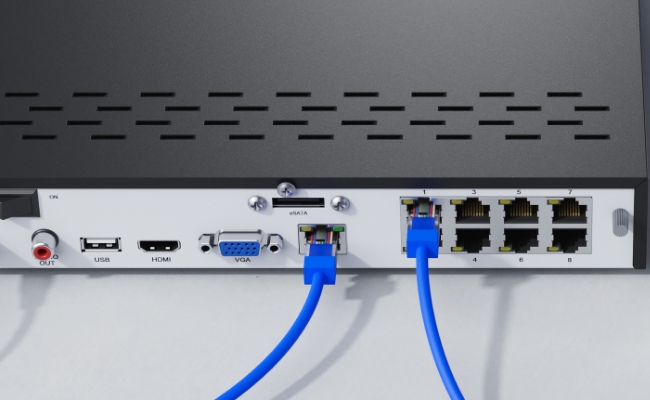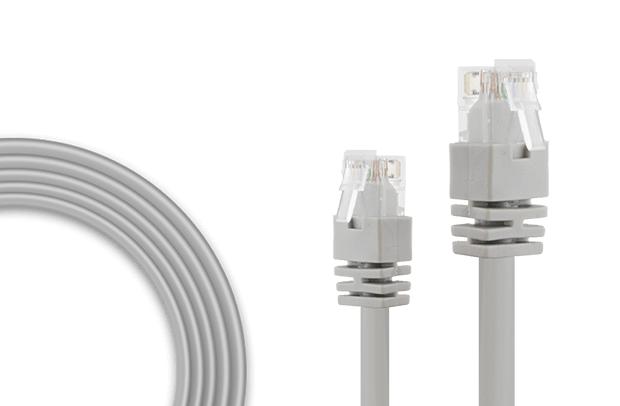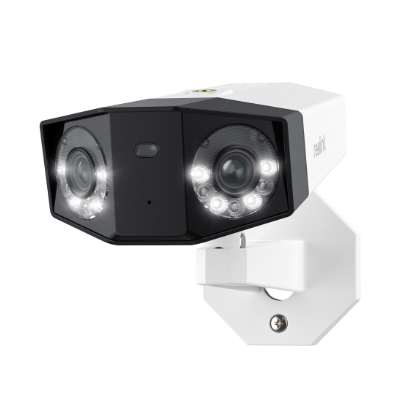Security Camera Cable: Types & How to Use

When it comes to setting up a reliable security camera system, choosing a suitable security camera cable is crucial. The type of cable used can significantly impact the quality and efficiency of the surveillance setup.
Various security camera cables are available, each with specific characteristics and ideal use cases. Understanding the different cable types and their applications can help ensure a successful and effective security camera installation.
Security Camera Cable Types
In the realm of security camera installations, a diverse array of cables plays a crucial role in facilitating seamless operations and ensuring dependable connectivity. Let’s explore the distinct types of security camera cables and their specific applications, shedding light on the vital role they play in surveillance systems.
Extension Cable
Security camera extension cables are essential for extending the reach of security cameras from the main recording or monitoring device. These security camera cable extensions provide flexibility in positioning cameras at a distance from the central unit, allowing for versatile surveillance setups. They are handy for outdoor installations or areas without direct wiring.
Power Cable
Security camera power cables are designed to provide the necessary electrical power to the cameras. A power cable for security cameras ensures a consistent and reliable power supply, which is crucial for the continuous operation of surveillance systems. They come in various lengths and configurations to accommodate different installation requirements.
Ethernet Cable
Security camera ethernet cables, especially those utilizing Cat5 technology, are commonly used for IP-based security cameras. A security camera with Cat5 cable facilitates high-speed data transmission and power delivery (PoE) to the cameras, streamlining the installation process and minimizing cable clutter. Such ethernet cable security cameras are ideal for modern, networked surveillance setups.

BNC Cable
A BNC cable for security cameras is a traditional coaxial cable commonly used for analog CCTV cameras. These BNC security camera cables provide a stable connection, ensuring sound video transmission over longer distances. They are well-suited for legacy surveillance systems and scenarios where analog cameras are still in use.
HDMI Cable
While less commonly used in traditional surveillance setups, HDMI cables can be employed in certain situations, especially for high-definition video transmission and connections to display monitors or recorders. Their high bandwidth and fidelity make them suitable for specific security camera applications.
How To Choose Security Camera Cables
Selecting the proper security camera cables ensures a reliable and effective surveillance system. When choosing security camera cables to meet specific installation requirements, several important factors should be considered.
Distance
The distance between the security camera and the recording or monitoring unit is critical when selecting cables. Different cable types are designed to accommodate varying distances, with extension cables handy for longer reaches.
Connector Type
Considering the connector type is essential to ensure compatibility and secure connections. Different cables may use BNC, RJ45, or other connectors, and choosing the appropriate type based on the camera and recording equipment is vital for seamless integration.
Weather Resistance
For outdoor installations, weather-resistant cables are essential to withstand harsh environmental conditions. Cables with proper weatherproofing ensure long-term durability and reliable performance in outdoor surveillance setups.
Shielding
Shielding significantly minimizes electromagnetic interference (EMI) and radio frequency interference (RFI), which can degrade signal quality. Shielded cables are essential in environments with high levels of electrical noise.
Cable Thickness (Gauge)
The thickness of the cable, often measured in gauge, influences its power-carrying capacity and signal transmission capabilities. Thicker cables, typically with lower gauge numbers, are suitable for longer distances and higher power requirements.
Bandwidth
In the case of Ethernet cables used for IP-based cameras, considering the bandwidth capacity is crucial. Higher bandwidth cables can support higher data transfer rates, facilitating the transmission of high-definition video and other data-intensive tasks.
Accessories For Surveillance Camera Cables
In addition to the wires, various accessories are required to facilitate proper connectivity and functionality within the surveillance system. The accessories ensure a seamless and efficient setup when installing security camera cables.
Security Camera Cable Connectors
Security camera cable connectors are essential accessories that enable secure and reliable connections between different cable segments and between the cables and the cameras or recording equipment. These connectors come in various types, such as BNC connectors and RJ45 connectors, tailored to the specific requirements of different cable types.
Security Camera Cable Adapters
In specific installation scenarios, security camera cable adapters may be necessary to ensure compatibility and proper integration with the existing infrastructure. These adapters allow for the connection of different cable types or enable the use of standard connectors with specialized equipment, enhancing the flexibility of the surveillance system setup.
Installation Tips For Security Camera Extension Cable
When installing security camera extension cables, following practical tips can ensure a smooth and effective installation process while maximizing the reliability of the surveillance system.
- Measure The Length Accurately: Before installation, measure the required size of the extension cable to avoid any shortage or excess. This preemptive step helps prevent installation delays and ensures a tidy and organized setup.
- Avoid Overstretching: While extending the cables, avoid overstretching them, as it can lead to signal degradation and potential damage to the wires. Opt for a length that allows some flexibility and slack to accommodate any adjustments during installation.
- Weatherproof Outdoor Cable: If the extension cables are intended for outdoor use, ensure they are weatherproof to withstand environmental elements such as rain, UV exposure, and extreme temperatures. This helps maintain the integrity and longevity of the cables in outdoor surveillance setups.
- Prevent Physical Damage: Take measures to secure the extension cables and protect them from physical harm, such as accidental cuts, abrasions, or crushing. Proper cable management, protective conduits, and strategic placement can help mitigate the risk of physical damage to the cables.
- Secure Connections: Ensure that the connections between the extension cables and the existing wiring or the cameras are securely fastened and insulated. This helps maintain reliable electrical and signal transmission, reducing the likelihood of connectivity issues over time.
When To Use Security Camera Power Cable
Security camera power cables are essential in various scenarios where a reliable power supply is necessary to ensure surveillance equipment's continuous operation and functionality.
- Battery Recharging: In instances where the security cameras are equipped with rechargeable batteries, power cables are needed to recharge the batteries, ensuring uninterrupted surveillance during charging cycles.
- Power Supply: When the security cameras require a direct power supply, power cables connect the cameras to electrical outlets or power distribution systems, providing a constant source of electricity for continuous operation.
- Long-Term Deployment: For surveillance setups requiring long-term deployment without frequent battery replacements, power cables offer a dependable solution for sustained power delivery to the cameras.
- High-Power Consumption: In cases where security cameras have high-power requirements due to advanced features such as pan-tilt-zoom (PTZ) functionality or infrared illumination, power cables are indispensable for meeting the cameras' energy demands.
- Permanent Installations: For permanent or fixed surveillance installations, power cables provide a stable and consistent power source, eliminating the need for periodic battery maintenance and replacements.
Best Security Camera With Cat5 Cable - Reolink Duo 3 PoE
The Reolink Duo 3 PoE is a top choice for a compatible security camera with a Cat5 cable. It is compatible with RJ45 Ethernet cables, offering reliable and versatile surveillance solutions.
Groundbreaking 16MP Dual-Lens PoE Camera
16MP UHD, Dual-Lens, Motion Track, 180° Wide Viewing Angle, Power over Ethernet, Color Night Vision.
The camera features 16MP UHD clarity, 180° panoramic view, color night vision, motion track, and power over Ethernet technology. Its weather-resistant design makes it suitable for indoor and outdoor use.
FAQs
What Cable Is Used For Security Cameras?
The cable used for security cameras is typically an 18-gauge wire suitable for transmitting video signals and power.
What Is A Cat6 Cable For Security Cameras?
A Cat6 cable for security cameras provides improved bandwidth and reduced crosstalk compared to Cat5e, suitable for high-resolution video transmission.
Are All Security Camera Cables The Same?
Not all security camera cables are the same, as different types such as coaxial, ethernet, and siamese cables are used based on camera technology and setup requirements.
Conclusion
Understanding the various types of security camera cables and their respective applications is crucial for ensuring reliable and efficient surveillance system installations. Whether it's selecting the right extension cable for increased reach, incorporating power cables for reliable power supply, utilizing Ethernet cables such as Cat5 for data transmission, or leveraging BNC cables for specific connections, each type serves a distinct purpose in supporting a robust security infrastructure.
How do you choose security camera cables? Which type do you use? Share your thoughts and experience with us in the comment section below! Let's discuss together!
Search
Subscribe for the Latest Updates
Security insights & offers right into your inbox

